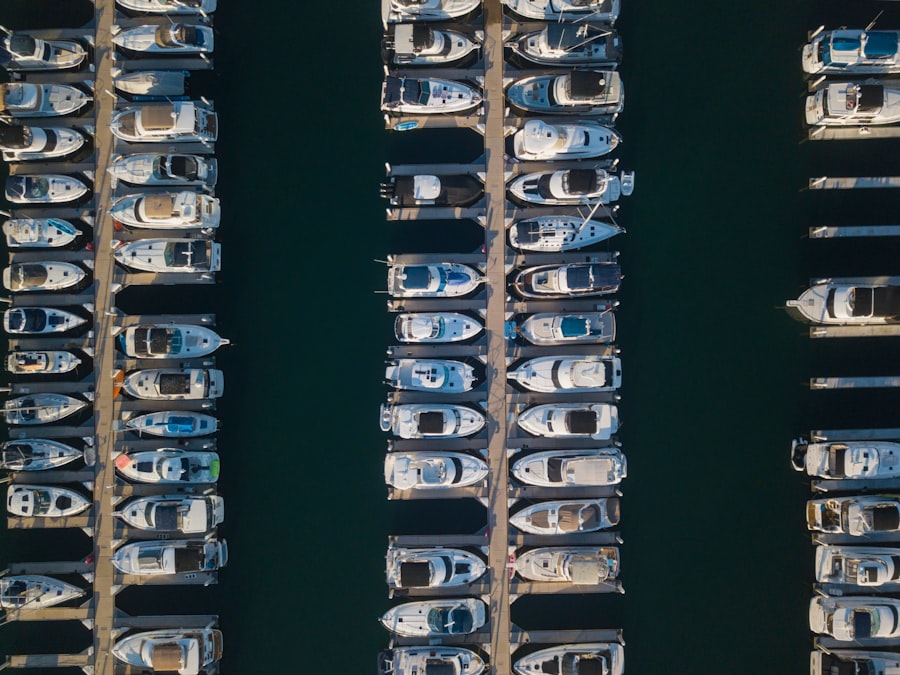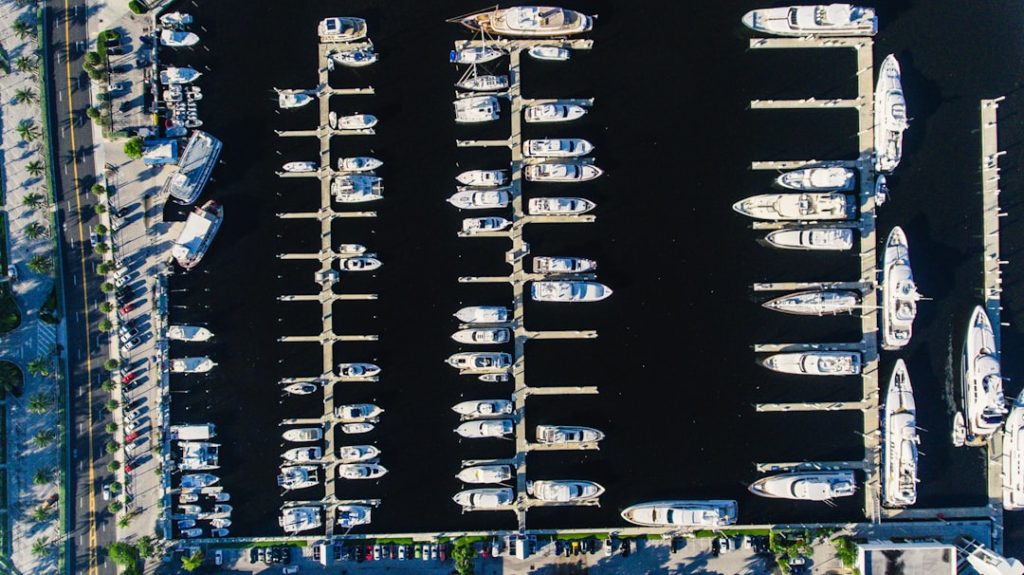A quality boat trailer is an essential component of the boating experience, serving as the bridge between land and water. It is not merely a means of transportation; it is a critical tool that ensures the safety and integrity of your boat during transit. A well-constructed trailer provides stability, minimizes wear and tear on the boat, and facilitates easy launching and retrieval.
The importance of a quality boat trailer cannot be overstated, as it directly impacts the longevity of your vessel and the overall enjoyment of your boating adventures. Moreover, a quality trailer enhances the convenience of boat ownership. It allows for easy storage, transport, and maintenance, making it simpler to take your boat to various locations.
Whether you are heading to a local lake or embarking on a coastal adventure, having a reliable trailer means you can focus on enjoying your time on the water rather than worrying about the logistics of getting there. Additionally, a sturdy trailer can withstand the rigors of travel, including rough roads and adverse weather conditions, ensuring that your boat arrives at its destination in pristine condition.
Key Takeaways
- A quality boat trailer is essential for safe and efficient boat transportation.
- Key factors in choosing a trailer include size, material, and compatibility with your boat.
- Proper maintenance and correct loading/unloading techniques extend trailer lifespan and ensure safety.
- Investing in a new trailer offers benefits like improved durability and modern features.
- Always prioritize safety and legal compliance when using and purchasing boat trailers.
Factors to Consider When Choosing a Boat Trailer
When selecting a boat trailer, several critical factors must be taken into account to ensure that it meets your specific needs. First and foremost is the weight capacity of the trailer. It is essential to choose a trailer that can safely support the weight of your boat, including any additional gear or equipment you may carry.
Overloading a trailer can lead to dangerous situations on the road, including tire blowouts or structural failures. Therefore, understanding the weight specifications of both your boat and the trailer is paramount. Another important consideration is the type of boat you own.
Different boats have varying hull shapes and sizes, which can influence the design of the trailer. For instance, a flat-bottomed Jon boat may require a different type of support compared to a deep-V hull fishing boat. Additionally, the length of the boat plays a significant role in determining the appropriate trailer size.
Ensuring that the trailer fits your boat snugly will not only enhance safety but also make launching and retrieving more efficient.
Types of Boat Trailers Available for Sale

The market offers a diverse range of boat trailers, each designed to cater to specific types of boats and user preferences. One common type is the bunk trailer, which features padded bunks that support the hull of the boat. This design is particularly beneficial for larger boats, as it provides even weight distribution and minimizes pressure points that could damage the hull during transport.
Bunk trailers are often favored for their ease of use when launching and retrieving boats. Another popular option is the roller trailer, which utilizes rollers instead of bunks to support the boat. This design allows for easier loading and unloading, as the rollers reduce friction between the boat and the trailer.
Roller trailers are especially advantageous for smaller boats or those with more delicate finishes, as they minimize the risk of scratches or abrasions during transit. Additionally, there are specialized trailers designed for specific activities, such as jet ski trailers or pontoon trailers, which feature unique configurations to accommodate their respective vessels.
Tips for Properly Maintaining Your Boat Trailer
| Maintenance Tip | Recommended Frequency | Key Actions | Benefits |
|---|---|---|---|
| Inspect Tires | Monthly | Check tire pressure, look for cracks or wear | Prevents blowouts and ensures safe towing |
| Grease Wheel Bearings | Every 12 months or 12,000 miles | Remove bearings, clean, and apply fresh grease | Reduces friction and prevents bearing failure |
| Check Lights and Wiring | Before every trip | Test brake lights, turn signals, and wiring connections | Ensures visibility and legal compliance |
| Inspect Brakes | Every 6 months | Check brake pads, drums, and fluid levels | Maintains stopping power and safety |
| Clean and Rinse Trailer | After every use, especially in saltwater | Wash off dirt, salt, and debris | Prevents corrosion and extends trailer life |
| Check Frame and Fasteners | Every 6 months | Look for rust, cracks, and tighten bolts | Maintains structural integrity |
| Lubricate Moving Parts | Every 6 months | Apply lubricant to winch, hinges, and coupler | Ensures smooth operation and prevents wear |
Proper maintenance of your boat trailer is crucial for ensuring its longevity and reliability. Regular inspections should be conducted to check for signs of wear and tear, particularly on critical components such as tires, brakes, and lights. Tires should be inspected for proper inflation and tread wear; under-inflated tires can lead to blowouts while over-inflated tires may wear unevenly.
Additionally, it is advisable to rotate tires periodically to promote even wear. Another key aspect of trailer maintenance involves keeping it clean and free from debris. After each use, especially in saltwater environments, rinsing off the trailer with fresh water can help prevent corrosion and rust formation.
Pay special attention to areas where saltwater may accumulate, such as brakes and wheel bearings. Lubricating moving parts regularly will also help maintain functionality and prevent premature wear. By adhering to these maintenance practices, you can extend the life of your trailer and ensure safe transportation for your boat.
How to Properly Load and Unload Your Boat onto a Trailer
Loading and unloading your boat onto a trailer requires careful attention to detail to ensure safety and efficiency. When loading, it is essential to position your vehicle in a way that allows for easy access to the ramp without obstructions. Before backing down the ramp, ensure that all equipment is secured within the boat to prevent shifting during transit.
As you back down the ramp, keep an eye on both your surroundings and your boat’s position in relation to the trailer. Once you are in position, it is crucial to ensure that the boat is centered on the trailer before winching it up completely. This helps distribute weight evenly and prevents any potential swaying during transport.
When unloading, reverse these steps by carefully backing down the ramp until the boat floats off the trailer. Always communicate with any helpers you may have to ensure everyone is aware of their roles during this process. Practicing these techniques will not only enhance safety but also make each outing more enjoyable.
The Benefits of Investing in a New Boat Trailer

Investing in a new boat trailer can yield numerous benefits that enhance your overall boating experience. One significant advantage is improved safety features that come with modern trailers. Newer models often incorporate advanced braking systems, better lighting for visibility during nighttime towing, and enhanced structural integrity designed to withstand various road conditions.
These features contribute to safer transport and reduce the risk of accidents on the road. Additionally, a new trailer can offer greater convenience through improved design elements such as adjustable bunks or rollers that make loading and unloading easier than ever before. Many new trailers also come equipped with features like swing-away tongues for easier storage or integrated storage compartments for gear.
These enhancements not only simplify the process but also provide peace of mind knowing that your investment is protected by modern engineering standards.
Where to Find the Best Deals on Boat Trailer Sales
Finding the best deals on boat trailers requires some research and consideration of various purchasing avenues. Local dealerships often provide a range of options along with expert advice tailored to your specific needs. Visiting these dealerships allows you to inspect trailers in person, assess their build quality, and ask questions about warranties or service options available post-purchase.
Online marketplaces have also become increasingly popular for purchasing trailers due to their vast selection and competitive pricing. Websites dedicated to boating equipment often feature user reviews that can provide insights into product performance and reliability. Additionally, classified ads or auction sites may offer used trailers at significantly reduced prices; however, it is crucial to thoroughly inspect any used equipment before making a purchase to ensure it meets safety standards.
Ensuring Safety and Legal Compliance with Your Boat Trailer
Safety and legal compliance are paramount when it comes to operating a boat trailer on public roads. Each state has specific regulations regarding trailer registration, licensing, and safety equipment requirements such as lights and reflectors. Familiarizing yourself with these regulations will help avoid fines or legal issues while ensuring that you are operating within the law.
Regular maintenance checks are also essential for compliance with safety standards. Ensuring that all lights are functioning correctly, brakes are responsive, and tires are in good condition not only keeps you safe but also protects other road users. Additionally, using safety chains when towing provides an extra layer of security in case of hitch failure.
By prioritizing safety measures and adhering to legal requirements, you can enjoy peace of mind while transporting your boat on public roads.


